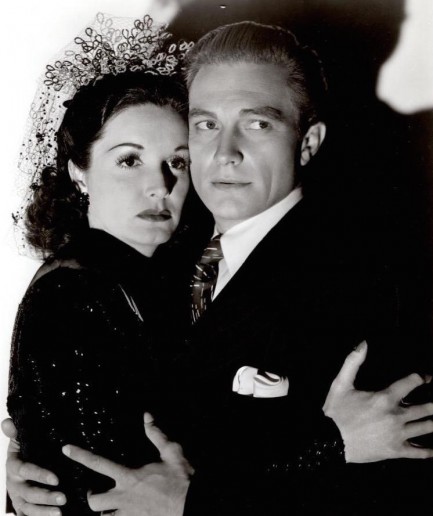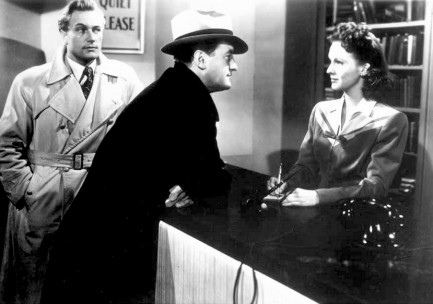| Vintage Pulp | Jan 24 2023 |

He doesn't have a hook for a hand yet, but he's always practicing for that day.
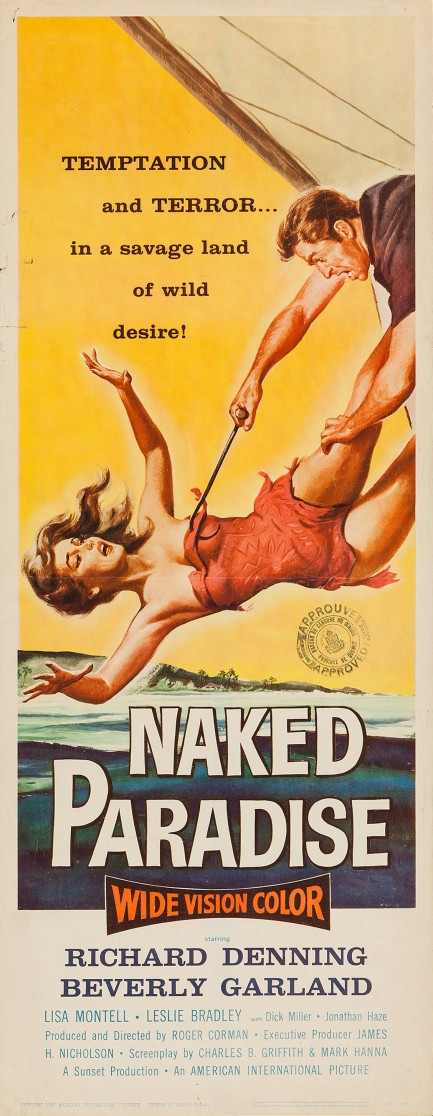
The first thing to know about Naked Paradise is that it's an early Roger Corman movie, made by Sunset Production and distributed through American International Pictures, companies he helped establish. Corman also directed, so it's safe to say he had near-total control of the movie on and off the set. While he's made some real stinkers over the years, by his standards Naked Paradise isn't terrible. That doesn't mean its good. It's still laughably dopey in parts, the type of movie you can riff on from start to finish, but narratively it hangs together reasonably well and a couple of the actors practice their craft with competence.
Plotwise, three criminals led by Leslie Bradley travel to Oahu disguised as pleasure cruisers to try lifting a massive pineapple and sugar cane plantation's payroll. Their escape is via the same method as their arrival, unbeknownst to their boatmates, who at first are too busy sunning themselves and romancing to realize there are three dangerous criminals in their midst. Tensions between the boat's captain Richard Denning and the crooks soon come to a frothing head when the lead heister and his arm candy Beverly Garland acrimoniously split from each other.
The group are then stuck together during a tropical storm, a plot turn which brings to mind Key Largo. In fact we can hear screenwriter Robert Wright Campbell's pitch to Corman: “You see, it's Key Largo, sandwiched on one side by deep backstory showing the audience why Johnny Rocco and his henchmen are on the run, and on the other by an extended aquatic climax.” That's exactly the movie Corman made, though doubtless done far more cheaply than Campbell ever envisioned.
Corman has a genius for conjuring final results that are better than their shoestring budgets should allow, and he certainly is an unparalleled wrangler of nascent talent. He's given opportunities to directors such as Coppola, Demme, Scorsese, and Ron Howard, and performers like Jane Fonda and William Shatner. If there's such as thing as a pulp filmmaker he's the guy. His stories nearly always aim for the gut by focusing on action with a hint of innuendo, and rely upon the most standard of cinematic tropes. Naked Paradise is quintessential Corman. Is it good? Not really. But it's certainly watchable. It premiered this month in 1957.
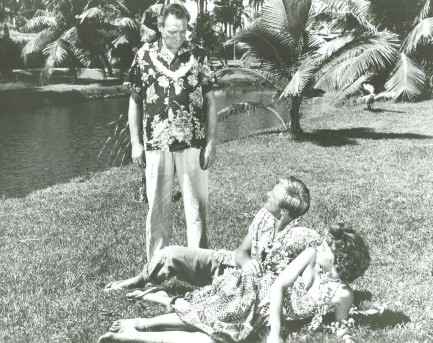
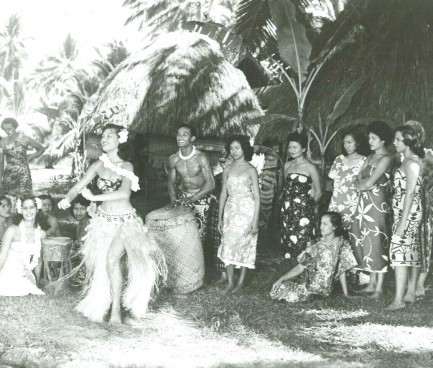
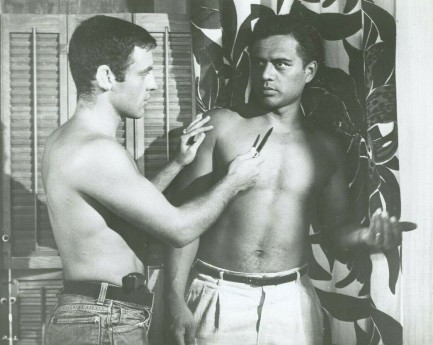
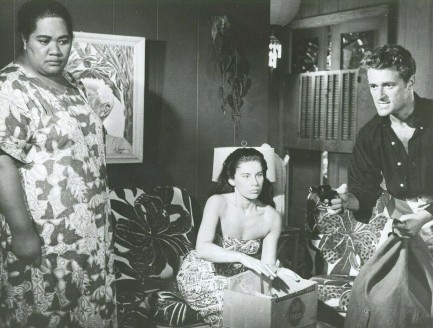
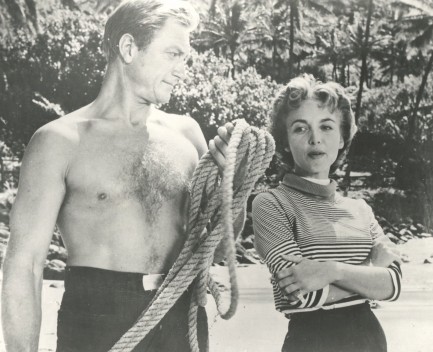
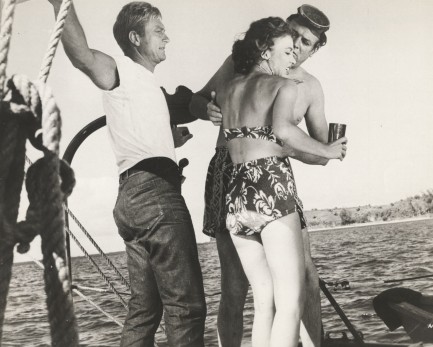
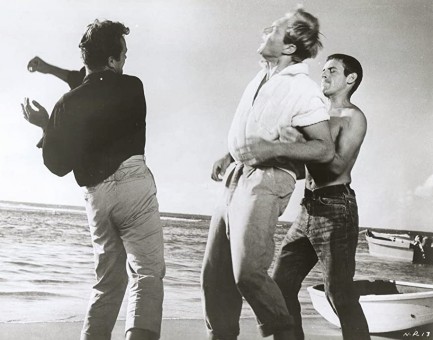
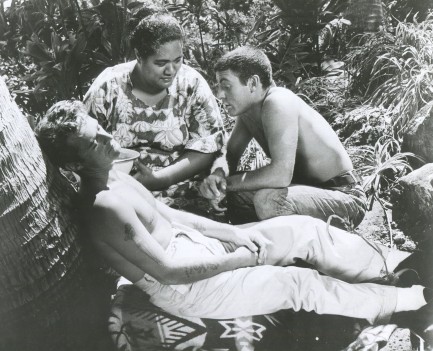

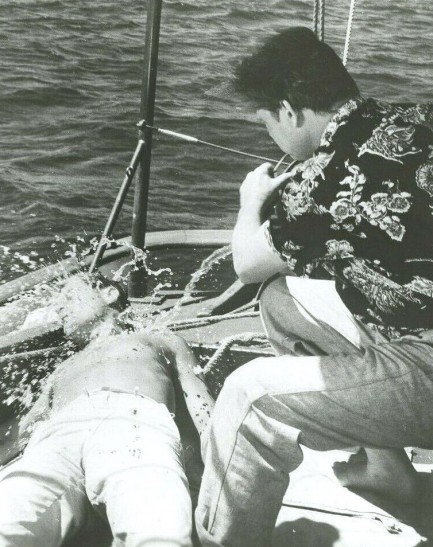
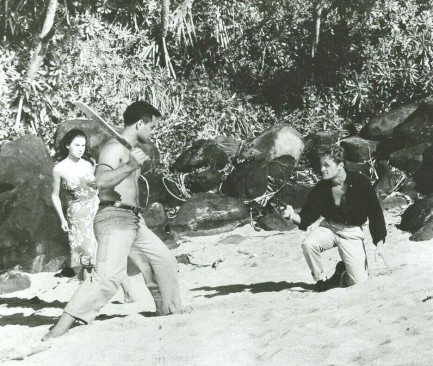
The group are then stuck together during a tropical storm, a plot turn which brings to mind Key Largo. In fact we can hear screenwriter Robert Wright Campbell's pitch to Corman: “You see, it's Key Largo, sandwiched on one side by deep backstory showing the audience why Johnny Rocco and his henchmen are on the run, and on the other by an extended aquatic climax.” That's exactly the movie Corman made, though doubtless done far more cheaply than Campbell ever envisioned.
Corman has a genius for conjuring final results that are better than their shoestring budgets should allow, and he certainly is an unparalleled wrangler of nascent talent. He's given opportunities to directors such as Coppola, Demme, Scorsese, and Ron Howard, and performers like Jane Fonda and William Shatner. If there's such as thing as a pulp filmmaker he's the guy. His stories nearly always aim for the gut by focusing on action with a hint of innuendo, and rely upon the most standard of cinematic tropes. Naked Paradise is quintessential Corman. Is it good? Not really. But it's certainly watchable. It premiered this month in 1957.











| Vintage Pulp | Nov 30 2020 |

The deeper you go the tighter it gets.
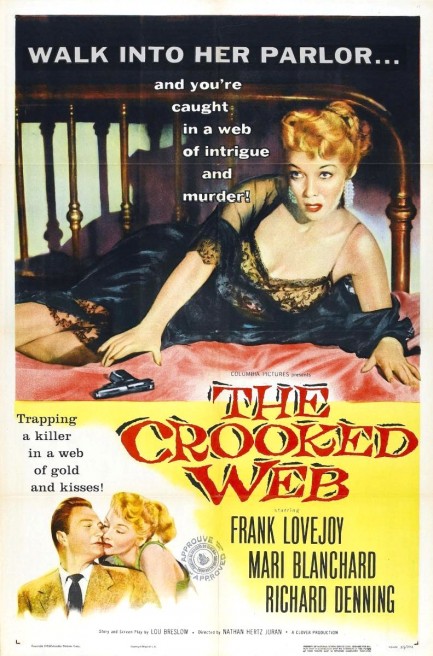
We've all seen movies about the long con, the elaborate, drawn-out, multi-participant scam. The Crooked Web, aka The Big Shock, starring Frank Lovejoy, Richard Denning, and Mari Blanchard, is an early example of the sub-genre. The plan is for a group of crooks to sell a cache of gold one of them found in Germany during World War II, but the con takes an unexpected twist early, and we learn that the trap being set is deeper than it first seemed. We can't share more details, but we can tell you the film strives greatly to rise above its b-movie constraints with plenty of exterior shooting and a script with international scope. The plot even takes the principals to post-war Germany—which looks a lot like Southern California even with matte work designed to put the foreign illusion across. But you have to forgive budget woes. The flaw that's difficult to overlook is the unbelievable carelessness of the central scam artists, who are posing as brother and sister, but are really lovers and can't keep their hands off each other even when their mark is just around the corner. They're almost busted while in the clinch multiple times, which is a laughable lack of restraint when there's so much at stake. But the shortest route to dramatic tension is to make characters behave like morons. We've talked about it before. It's lazy screenwriting, but that's okay—The Crooked Web is still a fun movie. It premiered in the U.S. today in 1955
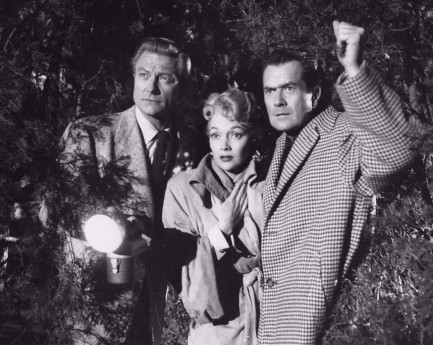
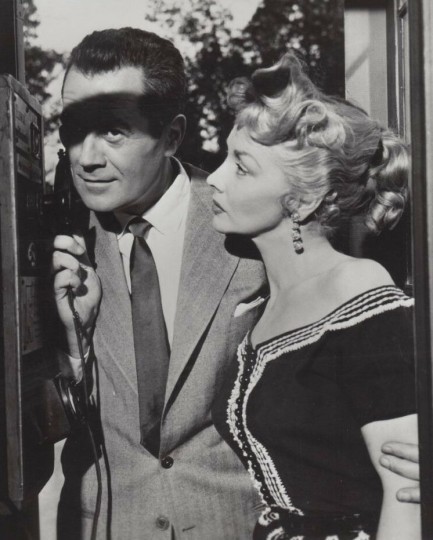
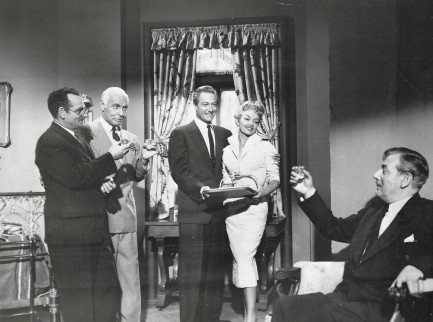
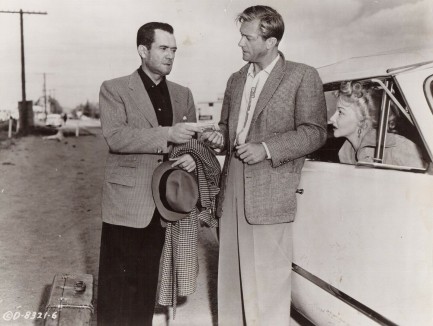
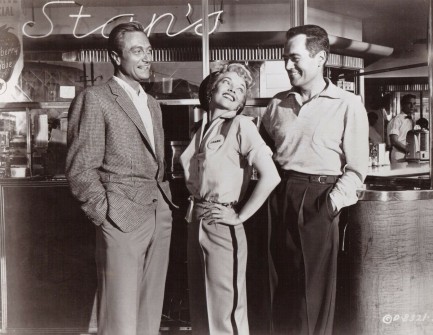
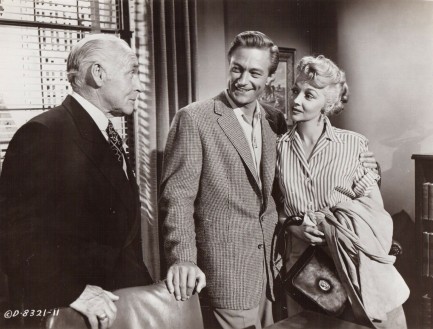
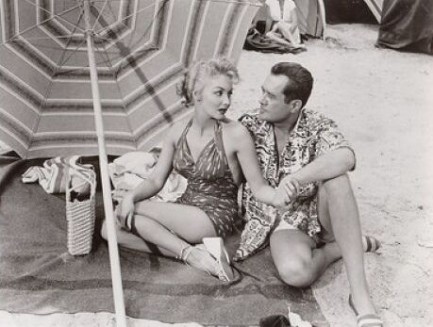
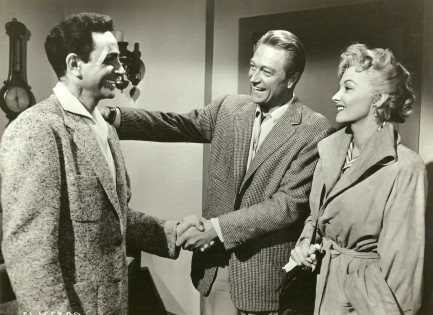
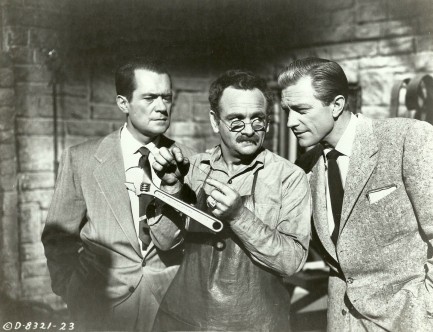
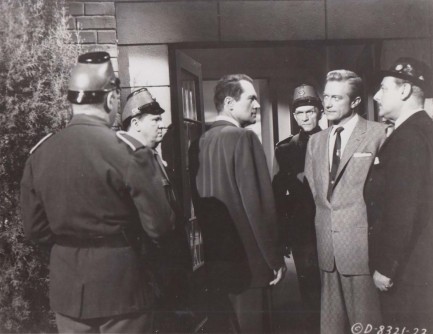
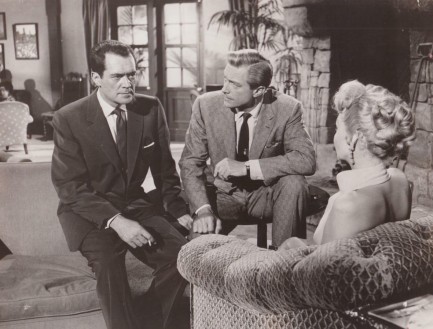
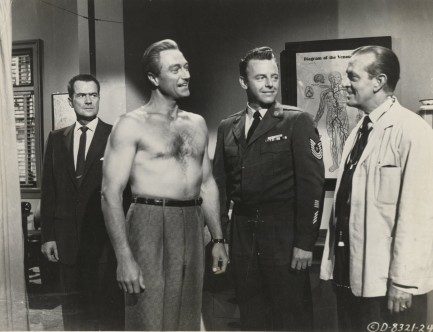
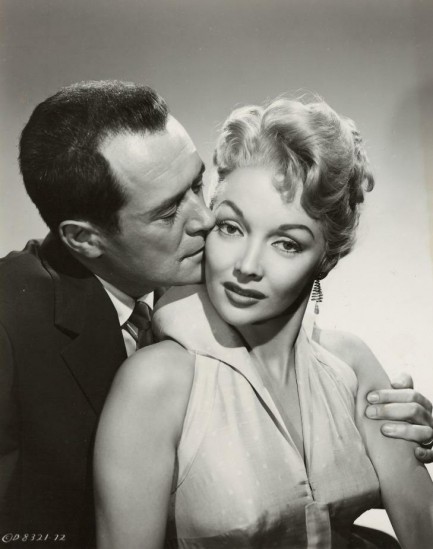
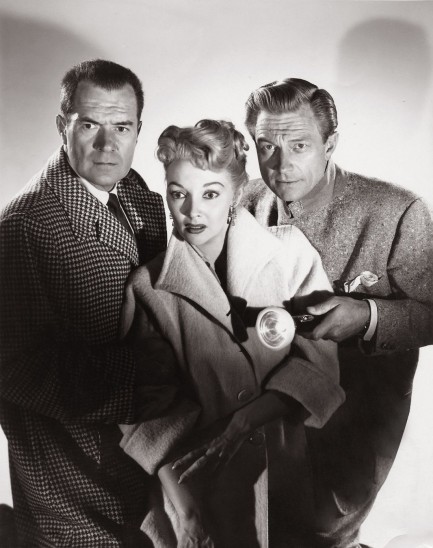
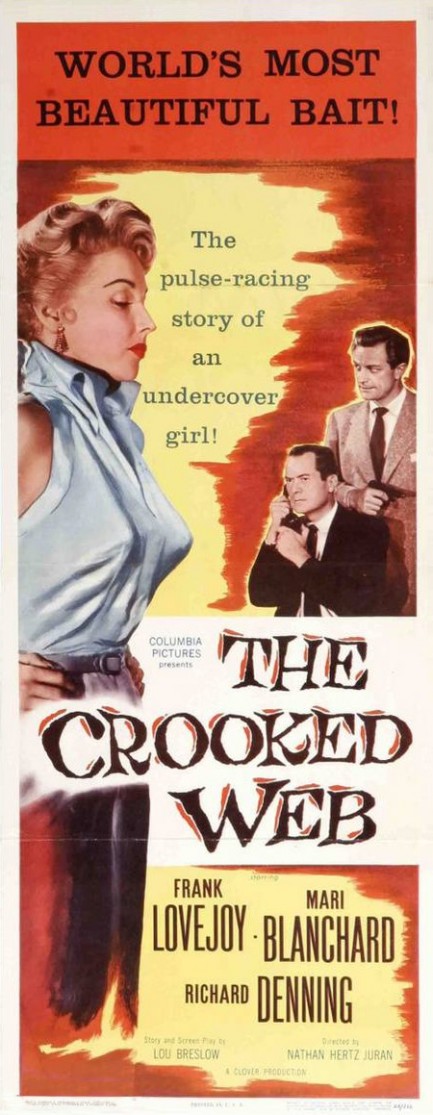
| Vintage Pulp | Jan 27 2018 |

Counterfeiters and Nazi agents clash in wartime Los Angeles.
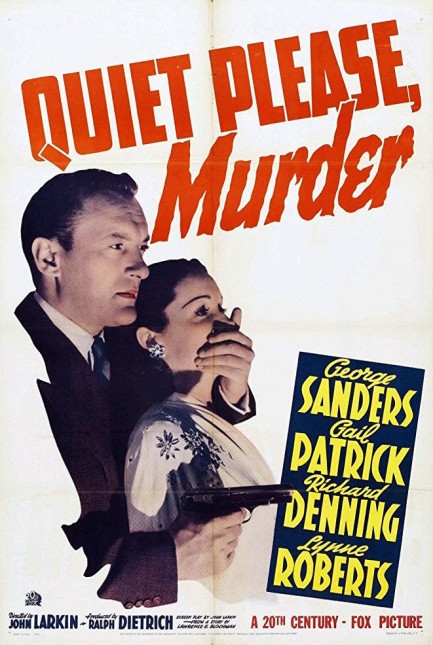
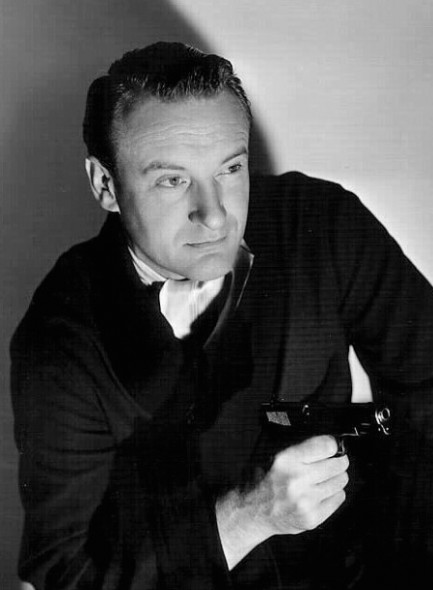 When we saw Quiet Please: Murder on the Noir City slate and realized we'd never heard of it we decided to watch it and were treated to an interesting flick about sellers of literary forgeries who get in over their heads when they cheat the representatives of Nazis. Apparently, Hermann Göring is accumulating items he expects to maintain value in the event of post-war inflation, and a rare quarto of Hamlet fits the bill. George Sanders and Gail Patrick are the crooked vendors who run afoul of the Nazis, as well as the cop hero played by Richard Denning. The movie is remembered for its central scene involving an air raid drill that plunges heroes and villains into a blackout at a crucial moment, but the primary benefit here is watching Sanders, who was Russian born but learned a clenched-jaw upper class English accent that made his voice unique in film. He's a perfect baddie here, shooting a librarian to acquire the original Hamlet, pimp slapping his partner Patrick, and in general being shady as fuck. Thanks to him Quiet Please: Murder is an entertaining little b-noir.
When we saw Quiet Please: Murder on the Noir City slate and realized we'd never heard of it we decided to watch it and were treated to an interesting flick about sellers of literary forgeries who get in over their heads when they cheat the representatives of Nazis. Apparently, Hermann Göring is accumulating items he expects to maintain value in the event of post-war inflation, and a rare quarto of Hamlet fits the bill. George Sanders and Gail Patrick are the crooked vendors who run afoul of the Nazis, as well as the cop hero played by Richard Denning. The movie is remembered for its central scene involving an air raid drill that plunges heroes and villains into a blackout at a crucial moment, but the primary benefit here is watching Sanders, who was Russian born but learned a clenched-jaw upper class English accent that made his voice unique in film. He's a perfect baddie here, shooting a librarian to acquire the original Hamlet, pimp slapping his partner Patrick, and in general being shady as fuck. Thanks to him Quiet Please: Murder is an entertaining little b-noir.